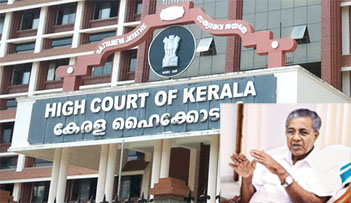Kerala High Court recently upheld the Kerala Cooperative Societies (Amendment) Act 2017, ruling voting rights in district cooperative banks would be limited to primary agricultural credit societies and urban co-operative banks.
As per the amended Act, the management boards of district cooperative banks were removed and administrators appointed, media reports claim. The amended Act also restrains members from holding the office of the president or vice-president of the banks for more than two consecutive terms.
The court gave this ruling on a petition filed by the presidents and other office-bearers of the dissolved district cooperative banks. The petitioners argued the right to form cooperatives was a part of the fundamental right under Article 19(1)(c) of the Constitution and therefore the amendments were ultra vires.
On the contrary, the government said the representatives of primary agricultural credit cooperative societies and urban cooperative banks could alone provide better service in the field of agricultural credit activities and banking activities.
The govt further said the amended Act was aimed to curtail the illegal activities and corruption by cooperative institutions and safeguard public interest and to ensure transparency in the administration of the societies.. The amendments were made on the recommendation made by an expert committee as also had suggested forming an apex body for primary societies.
While upholding the Kerala Cooperative Societies (Amendment) Bill 2017, the court said it was disheartening to note money was being siphoned off from cooperative societies by the employees and others at the helm of affairs of the societies.
“The members of the societies who belonged to middle class and poor sections of society were facing the adverse consequences of the misappropriation and corruption in the banks. Therefore, it was only appropriate the functioning of the societies was taken care of by the government to protect the interest of the depositors”, the court observed.
The power vested in the government to supersede a committee or suspend a committee could not be termed as unreasonable. The attempt of the legislature by bringing amendments to the Act was to uphold the principle of democracy. Therefore, the amendments could not be characterized as interference with the independence and the autonomy of the societies. The endeavour of the government could be viewed as a protection of the interest of society and its members, the court added.
